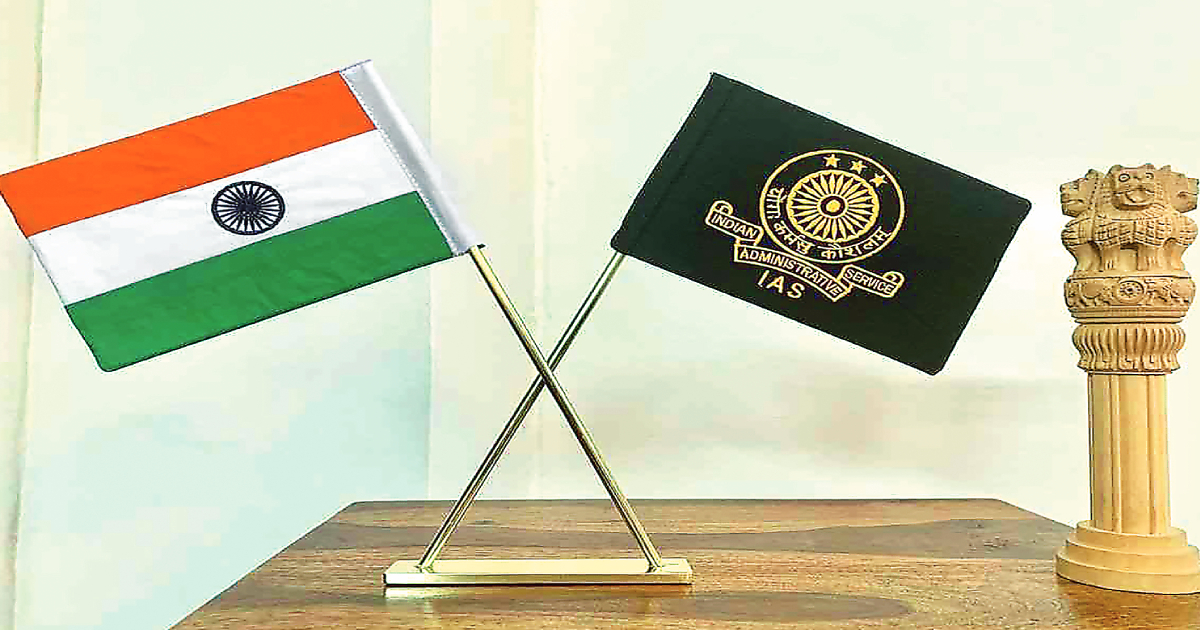FEDERAL POLICY AND IAS POSTINGS

Given the fractured relationship between the Centre and several state governments, any proposal from the Centre which has a bearing on the exercise of power by the agencies reporting to either of them becomes controversial: and a proverbial war of words follows between the PM and his ministers on the one hand and the non-NDA CMs on the other.
Thus, the decision to extend the jurisdiction of the Border Security Force (BSF) up to fifty kilometers (as against the existing fifteen) in Punjab, West Bengal, and Assam, on the one hand, and the central fiat on the deputation of All India Service (AIS) officers on the other have evoked a sharp critique from the CMs of WB and TN.
As the former issue is in the Supreme court, this column will focus on the AIS, especially in the context of the letter of CM Mamata Banerjee (January 20,2022) in which she has accused the Centre of going against ‘the foundation of our federal policy and the basic structure of the Constitutional scheme’.
She went on to describe the proposed amendments to the IAS cadre rules (1954) as a ‘non-federal extreme’ which will create a ‘fear psychosis amongst the officers and affect their performance.
What is interesting is that the Government of West Bengal has also been in violation of the ‘federal policy of alternating officers between the Centre and the states’ by refusing to allow officers of the WB cadre to go on central deputation.
She has also arbitrarily withheld her ‘noobjection’ to inter cadre transfer of officers on the grounds of their marriage, which is provided for in the AIS rules.
As such, she cannot take the moral high ground, for she too has been quite selective in her interpretation of rules.
But let us get to the rule position first. Deputation to the Centre is covered under Rule 6(i) of the IAS cadre Rules which stipulate that ‘a cadre officer may, with the concurrence of the state government concerned and the Central government be deputed for service under the Central government, or another state government or under a company, association or body of individuals, whether incorporated or not, which is wholly or substantially owned or controlled by the Central government or any other state government.
Provided that in case of any disagreement, the matter shall be decided by the Central government, and the State government or state governments shall give effect to the decision of the Central government.’
Every year the Centre asks the states for an ‘offer list’ of AIS officers (IAS, IPS and Indian Forest Service) willing to go on central deputation from which the Central government picks up officers.
The fact of the matter is that several states, including WB, TN, MP, UP do not allow officers to opt for deputation, thereby leading to widespread frustration among officers willing to and looking forward for their Central deputation.
Working in the Centre is an essential part of being an All-India services officer. If an officer is denied the opportunity to work in the Centre, how can he call himself an All-India service officer? Each state has a deputation reserve, but many state governments now hold officers more than their authorized cadre strength.
To mitigate the difficulties on account of shortages in the Centre, the Department of Personnel and Training (DoPT) wrote to state governments on December 20, 2021, in the context of non-availability of offices for the Central deputation Reserve.
The letter proposed the insertion of an additional condition in 6(i): provided that each state government shall make available for deputation to the Central government, such numbers of eligible officers of various levels to the extent of the CDR. and ‘in case of any disagreement, the State government shall give effect to the decision of the Central government ‘within a specified time’.
Earlier, the state governments could just vitiate the entire process by not taking any decision, thereby making it difficult for the Central government to fill up the vacancy.
In this tussle between the Centre and the states, officers are at the receiving end from both the Centre and the state. In the first instance, the state government may or may not forward the names of all the willing officers, and of those who have opted to go, the centre has the discretion must choose some, and reject the others.
Going on deputation to the Centre is a matter of right for an All-India services officer.
It is not a matter of grace, or discretion to be applied on a case-to-case basis. It has been observed that the Centre walks the extra mile to get officers of their choice and the state is equally determined not to release them.
This upsets the personal and professional growth trajectories of officers, especially in the case of married couples when only one of the two is allowed the Central deputation, and the other is held back.
The time has come for a thorough recast of the AIS rules in consultation not just with the state government but the IAS, IPS and Forest service associations so that their points of view are also incorporated.
THE VIEWS EXPRESSED BY THE AUTHOR ARE PERSONAL



.png)
.png)
.png)
.png)
.png)
.png)








.jpg)


.jpg)
